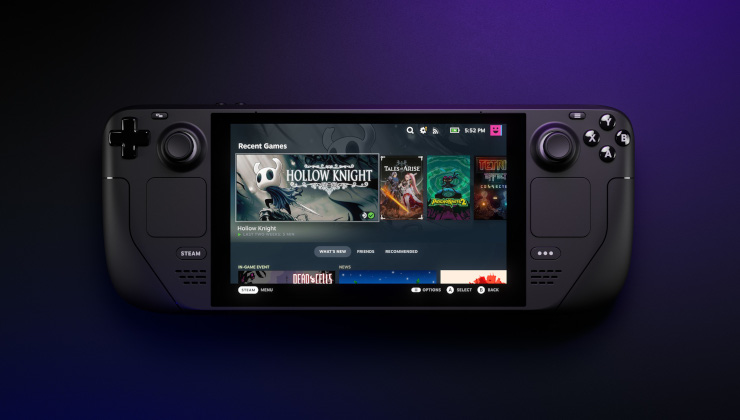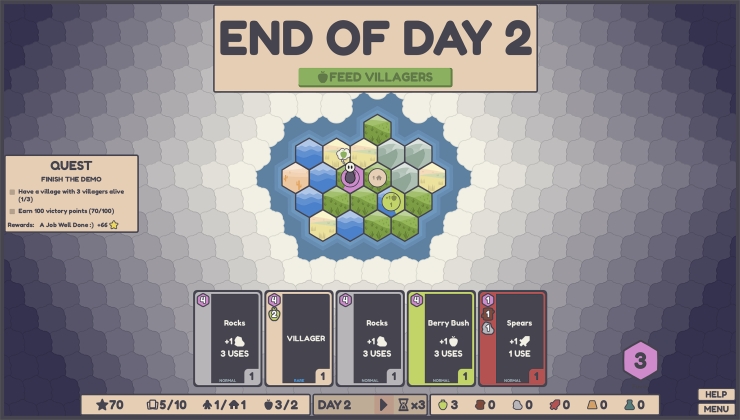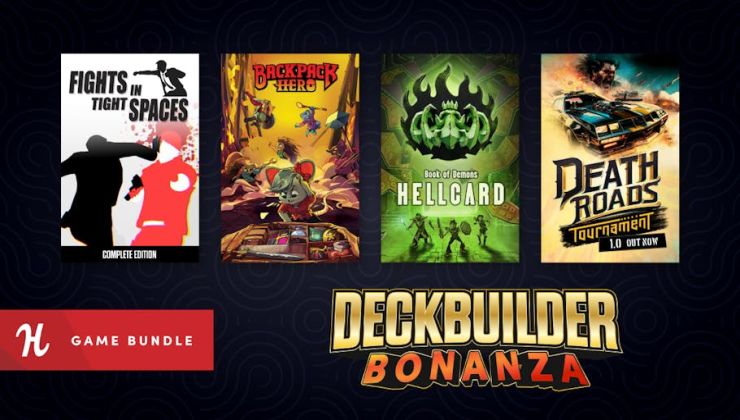With the Stadia streaming service from Google launching on November 19th for those with the Founder's Edition or Premiere Edition, they're finally revealing what will be available.
It will only have 12, yes 12, titles at launch and a few of them are sequels. They are: Assassin's Creed Odyssey, Destiny 2, GYLT, Just Dance 2020, Kine, Mortal Kombat 11, Red Dead Redemption 2, Thumper, Tomb Raider + Rise + Shadow and lastly Samurai Shodown.
The only title you will get included in the Stadia Pro subscription (three months free with the Founder/Premier Edition) is Destiny 2, all others you have to pay for. If you stop paying for Stadia Pro, you lose access to any free games claimed and only keep those you've paid for normally.
Google said more will be coming before 2019 is up like Borderlands 3, Darksiders Genesis, Dragon Ball Xenoverse 2 and more although the dates of them are "Subject to Change". You can see the announcement about them here.
This Debian Linux and Vulkan powered streaming service certainly has an uphill battle to win over gamers and this launch line up, honestly, doesn't seem all that great. With the leaks about Steam Cloud Gaming (#1, #2), Stadia may have an even bigger fight coming.
We have a Stadia Founder's Edition pre-ordered to cover it here, although our thoughts on how Stadia runs on Linux may be quite delayed as they ship it out based on order date. Checking back on it, ours is saying to be delivered by November 27th.
That's my main reason why I think this will be another flop. It's not viable in third world countries (where low spec pcs would been benefit) and only avaliable in first world ones (…)
Other issue is that in "third-world" countries they use mainly GSM to access internet and Stadia needs really good fiber.
As far as I know in US everyone can afford good internet connection but many people can't afford good hardware and I guess that's the target.
Here in Poland you can get good fiber simply only in big cities, I would gladly pay for one but where I live there are none. :|
Last edited by pskosinski on 11 Nov 2019 at 9:59 pm UTC
It is not as simple as that. You have input lag in all games.With the lack of content presented so far it looks more and more like this project will fail. I hope it will not since it could add so many positive technical things to the gaming industry.I disagree. I mean yes, it has some genuine advantages for multiplayer games since cheating should be impossible and there's going to no unreliable client<>server or client<>client sync (but in exchange you get input lag), and people don't have to pay the high entry fee for a console or gaming PC, but that's about where the advantages for the consumer end.
...
For multiplayer games the input depends on how much the server is willing to trust the client data. For services like Stadia the input lag should be well known and quite predictable. Remember that the communication delay is only in single direction. If you send a ping message then the input lag is half that. On a good internet connection that would equal well above 60fps. In gaming terms this problem is actually a variation of rubber banding.
It is the same for single player games if the update frequency is low (which is likely the case if you run a game with 4k + HDR). A game running as a slide show is usually uncontrollable because of input lag.
With on-line streaming services it should actually be possible to reduce input lag just because the simple fact that the fps is high. Then you also get the benefit of much more storage for cut scenes in high quality. There is a possibility of a much more advance AI. The benefit of much easier server programming which hopefully could help the indie market. Also the thing google were talking about which will allow people to pick up from someone else stream sounds like an interesting concept.
I don't mind if the streaming market will become successful but what google has presented so far leaves a lot to wish for. Also, I would be surprised if at launch, everything will be working smoothly. I don't think they will reach the level of what is potentiality possible with today's hardware. It will take a while.
As far as I know in US everyone can afford good internet connection but many people can't afford good hardware and I guess that's the target.
Roughly 8% of the US has no access to high-speed internet.
I'd be surprised if my internet here in Canada could handle Stadia. I'm in a big city, but I can't even stream Stardew Valley from Steam to my tablet.
The same reason I don't have a console, nor use a controller.
And Google, in their infinite wisdom, decided to not launch Stadia in any of the regions where the latter would actually matter.
This! Totally this!!
That's my main reason why I think this will be another flop. It's not viable in third world countries (where low spec pcs would been benefit) and only avaliable in first world ones (where people can afford high end hardware, therefore, will have a better experience playing local)
The idea of streaming games it's not bad in concept and I believe it'll probably be the future of all software (for better or worse), but like VR, it's a technology "too soon to succeed"
Isn't this technically a "Soft" or "Beta" launch, hence the subscription requirement for the Founder's Edition? I know the general version of the service doesn't launch till next year, so my guess is that this is to get actual users on the platform to get real-world performance data so they are less likely to run into issues on the true launch day
same with odyssey...
but i dont want google... i hope it is true, that valve starts a streaming service
However, a potential exception for me is that I am interested in how cloud-computing resources could aid in rendering seamless, incredibly expansive and detailed experiences that wouldn't be feasible on even the beefiest gaming rig. That being said, I am skeptical. Game developers frequently don't do an outstanding job fleshing out content on a small scale let alone on a massive scale. This is not necessarily their fault; they are subject to resource constraints as well as internal and external pressures. I don't think most publishers would be receptive to letting games incubate longer in development than they already do even if the games were much more intricate, and I'm not interested in a half-assed game in which the actual content is sparse, it's just spread over a procedurally-generated sprawling expanse, or a game where character models and mannerisms are incredibly detailed but the game is bereft of story, purpose, or entertainment.
We'll be able to judge if Stadia was a success or not in ~5 years or so.
Are they trying to fail?
Might be, kind of. Because it would be slightly inconvenient if everybody would rush to try it out, overstressing the servers and then leave with a "Stadia sucks" because all they got was a "server full" message or bad performance.
And not a single one I'm interested in. Which saves me the FOMO, I guess.
The price and content of the subscriptions ensures i will never feel FOMO also i bc i dont believe fomo is a thing and if it has become a thing we need to destroy social media now.
Oh, poor innocent. It was a thing before social media even existed, it just didn't have a catchy acronym.
It definitely was a thing before social media, but post-social media it's been far easier for companies to leverage FOMO against an exponentially larger, and more susceptible, audience.
Not "believing" in FOMO is like not believing in the entire field of consumer psychology. Anyone interested really ought to watch the BBC documentary "[The Century of the Self](https://topdocumentaryfilms.com/the-century-of-the-self/)" ([Wikipedia article](https://en.wikipedia.org/wiki/The_Century_of_the_Self)). Incredibly interesting stuff.
Another thing I read is about negative latency or AI in gaming is fatal since it predicts beforehand a shot or any other action loading the experience.
If it were a platform that can download the video game for Linux flatpak type so that developers and companies remain calm about its code that is locked without access to the source code.
I'm not super-familiar with all these games (none of them are stuff I'd be interested in), but aren't they all character-based action-oriented games? Come to think of it, for a streaming service, why don't they have any single player games that aren't action-oriented? Y'know, ones where the slightest input lag wouldn't destroy people's ability to enjoy it?
German computer magazine c't has asked people to play games on PCs without telling them they were streamed - and the people didn't even realize. Furthermore, every online game has the same communication lines to cross...
Other issue is that in "third-world" countries they use mainly GSM to access internet and Stadia needs really good fiber.
As far as I know in US everyone can afford good internet connection but many people can't afford good hardware and I guess that's the target.
Here in Poland you can get good fiber simply only in big cities, I would gladly pay for one but where I live there are none. :|
Yup, I do live in one (the most expensive one btw) and I know that unfortunately it's impossible to a project like Stadia to succeed here due to poor network infrastructure, but ironically would be the perfect place for consumers because of the vast low end pc/notebooks here.
Isn't this technically a "Soft" or "Beta" launch, hence the subscription requirement for the Founder's Edition? I know the general version of the service doesn't launch till next year, so my guess is that this is to get actual users on the platform to get real-world performance data so they are less likely to run into issues on the true launch day
Even though it's still beta, average consumer want only the better experience, so if the first impression is "it's worse than playing with my high end pc" then people won't use it anymore. Valve made a similar mistake with Steam machines because they didn't refined the system (SteamOS, drivers, big picture...) before launching it for the public, then was released and floped.
Different from Netflix, the smallest input lag can be terrible when we talk about games (especially the fast paced ones) and this will be the main complaint when it release officially.
Some people may continue to use, but it'll be a niche, and a niche can't sustain this kind of market.
Because it would be slightly inconvenient if everybody would rush to try it out, overstressing the servers and then leave with a "Stadia sucks" because all they got was a "server full" message or bad performance.
In my opinion you're more right than you know :)














 How to set up Decky Loader on Steam Deck / SteamOS for easy plugins
How to set up Decky Loader on Steam Deck / SteamOS for easy plugins
See more from me